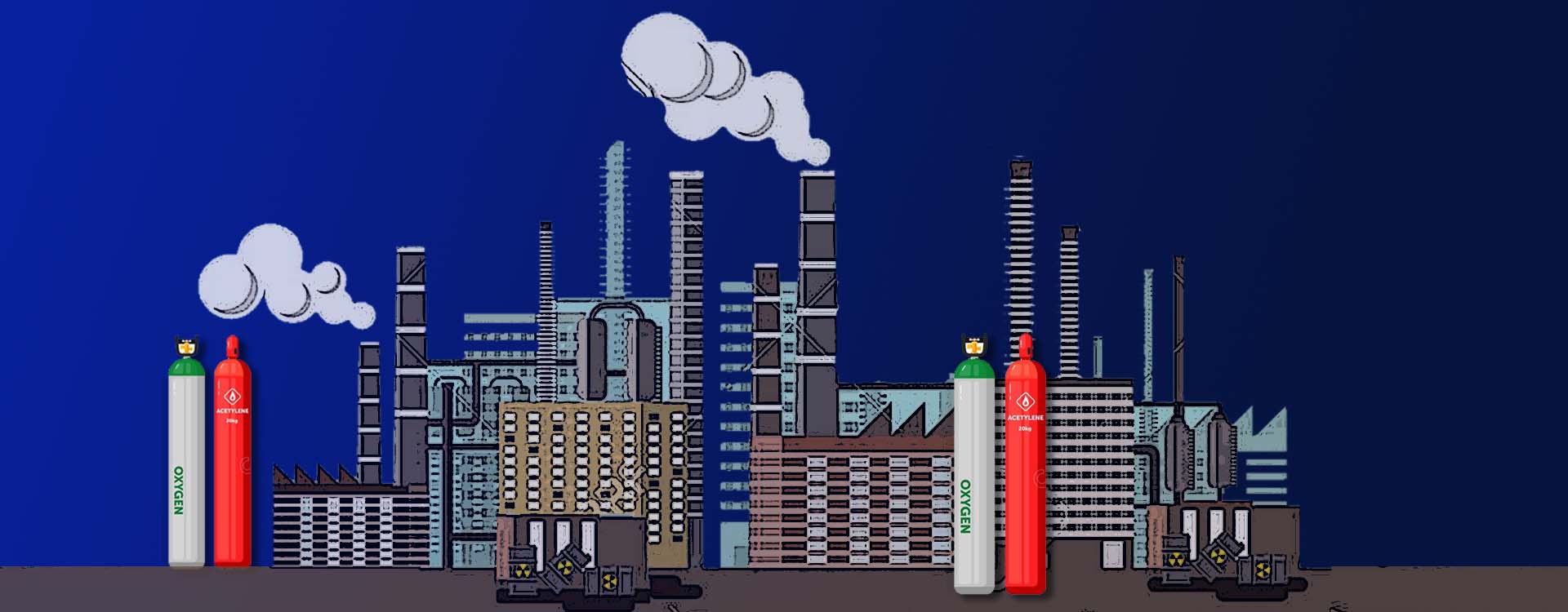The Government urgently ordered all liquid oxygen stocks in the country to be redirected to them. India is currently suffering from an acute shortage of the most vital naturally, abundant gas in the atmosphere which we cannot breathe without.
The Ministry of Home Affairs communicated to all the States and Union Territories about no industrial exception being allowed henceforth for use of Oxygen as a commodity. It was communicated via a letter to the Chairman of the Executive Committee of the National Disaster Management Act. Most importantly, manufacturing units are hereby directed to maximise their production of liquid oxygen which will be supplied directly to the Indian Government with immediate effect.
Why is the industrial use of liquid oxygen banned?
Liquid Oxygen will only be used for medical purposes since the diversion will save lives. The normal demand for Liquid Medical Oxygen in a pre-Covid era gone by was 700 Tonnes per day. The ongoing second wave of the Covid-19 pandemic in India has seen a 7X increase in the demand for LMO to 5000 Tonnes per day. The Government is at a critical stage where Indians are dying every second and they have been reduced to mute spectators. This is why the urgent decision was rolled out.
‘‘
1200 Engineering units and ancillary suppliers to industries are now on the verge of closure due to the wipe out of their industrial oxygen supply.
How SMEs will be impacted?
1200 Engineering units and ancillary suppliers to industries are now on the verge of closure due to the wipe out of their industrial oxygen supply. On the road to recovery from last year’s lockdown, these units are now back to where they started.
A majority of these engineering units were involved in Fabrication requiring the use of Industrial Oxygen to run operations. They are unable to get access to raw materials like Steel whose supply is also shut down.
Other factors contributing to the downfall of these SMEs include travel restrictions which has hampered the availability of workers. These SMEs will suffer from irrecoverable impact. Most affected SMEs include engineering companies, textile, and leather units.
What’s in it for me?
Start-ups in the business of manufacturing Industrial gases and equipment are seeing intense demand. ‘Inox Air Products’ is one such business which has been receiving sustained demand for Liquid Medical Oxygen. Inox Air Products is currently supplying to fulfil 60% of the LMO demand in India. Their units are now operational 24×7 to meet the huge surge in demands coming largely from hospitals overwhelmed with critically ill patients.
Air Products start-ups have a tremendous opportunity to be the saving grace in the current environment. The gap in the market for oxygen concentrators and medical equipment is very wide now and there is a pressing need for more start-ups to step into the game.
There is also room for innovation especially in the manufacture of air products like purifiers. Gurugram based start-up O2 cure has already pitched in their innovative air purification device that has been tested to neutralise the SARS-CoV-2 Virus.




